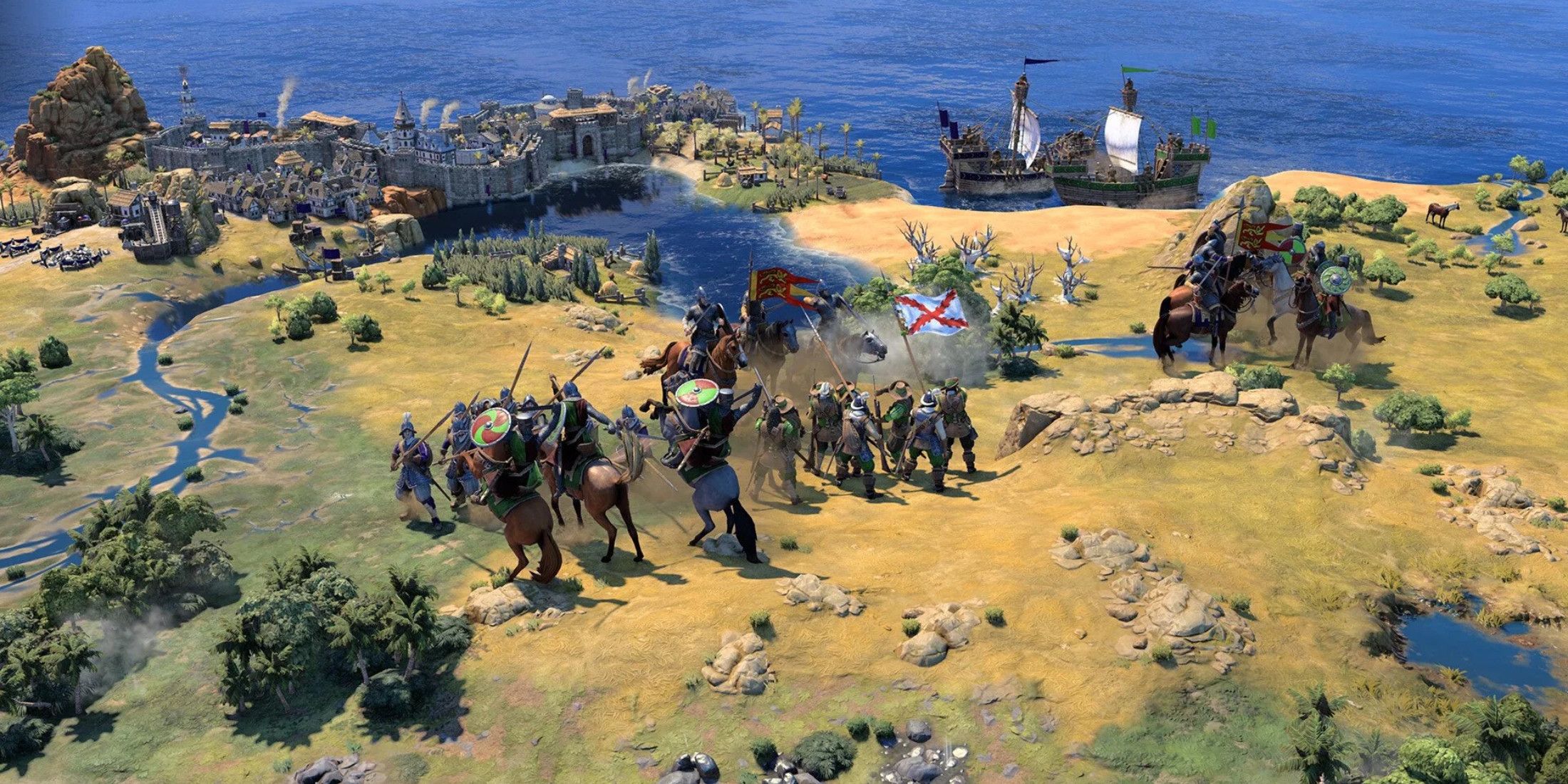Civilization 7 will be the next chapter in Sid Meier’s long-running grand strategy franchise, which audiences finally got a good look at during this year’s Summer Games Fest. Thanks to a gameplay deep-dive from Firaxis Games, wherein the Civ 7 developers covered the new civilizations, leaders, and features of the game, a clear image is starting to form, and it’s looking very exciting.
Perhaps the most intriguing aspect of Civilization 7 is its treatment of progression, which is ostensibly a large departure from games in the series’ past. For one thing, civilizations and leaders are now selected independently of one another, with each having unique quirks and strengths that can play off each other. This chimeric approach to civilization-building is fascinating on its own, but it’s expanded upon by the new Ages system, which promises to inject campaigns with exciting progression tools and opportunities for experimentation, the likes of which have never been seen before in the Civilization franchise.
Granular Detail Could Be Civilization 7’s Greatest Achievement
Civilization 7’s Age Transitions House a World of Potential
Through the Ages mechanic in Civilization 7, players will progress through three distinct periods per campaign:
- Antiquity
- Exploration
- Modern
The goal of this system is to mimic the cyclical rise and fall of real-world empires, much like how the Roman Empire seized control over Greek city-states, and how that same empire would subsequently fall and give birth to a number of new civilizations in Europe. By tapping into this facet of history, Civilization 7 allows players to create empires with complex histories that evolve over time.
This seems like a natural next step for the series, which has historically been about role-playing as specific real-world empires, like the USA or Macedonia, but with a more curated, sometimes bizarre, touch. Civilization 7‘s Ages mechanic, coupled with the new mix-and-match nature of leaders and civilizations, means that this role-playing can be even more granular, unique, and customizable. Notably, it opens the door to powerful and novel civilization-building within the confines of the game, teeing Civilization 7 up to be the most ambitious entry in the franchise yet.
How Civilization 7 Could Allow for Endless Possibilities
One of the many fascinating aspects of the new Ages system is how it allows one civilization to evolve into another, based upon real-world archetypes. For example, a player may have access to the Norman culture after completing the Age of Antiquity, which will let them morph their current civilization into a Greek or Roman one. With each new Age will come various benefits and changes, but civilizations will also retain several elements from their previous age, meaning that architectural styles and Wonders can effectively carry over from one civilization to another.
What new cultures players will have access to will depend on a number of factors, including what starting civilization they choose and specific choices made during each age—they won’t have free rein when it comes to changing cultures.
It’s not hard to see why this mechanic is so exciting. The notion that players could craft bespoke civilizations, melding aesthetic and cultural elements from across time geography, is incredibly compelling, as civilizations that people don’t often see mingling could be married in this virtual space. Of course, with the truncation of Civ 6‘s Eras to Civ 7‘s Ages, going from eight to three, respectively, there will be high expectations for each evolution to be substantial. Not every change that Civilization 7 is making has gone over well ahead of its release, so it will certainly be interesting to see if the dynamic and impactful Ages system lives up to its lofty aspirations.

/cdn.vox-cdn.com/uploads/chorus_asset/file/25582589/DSC08015.jpg)






